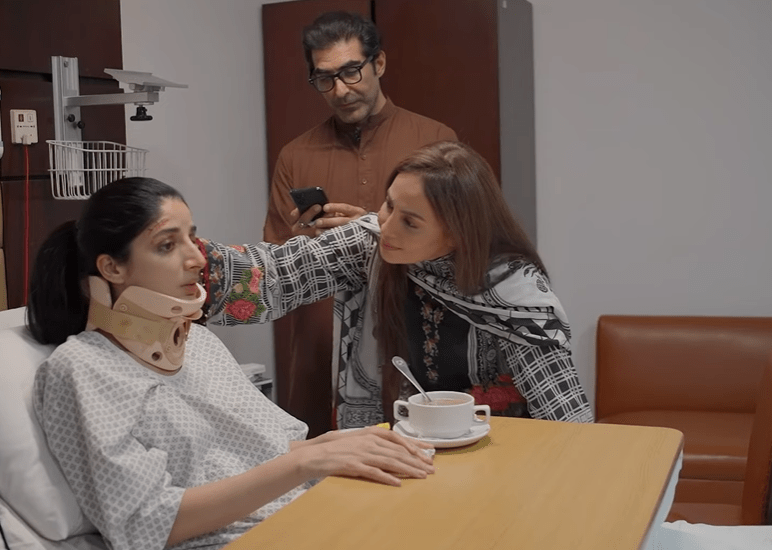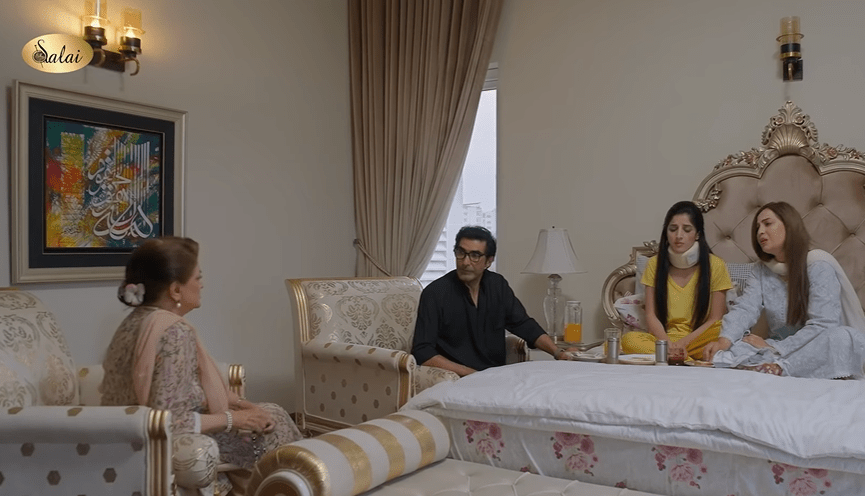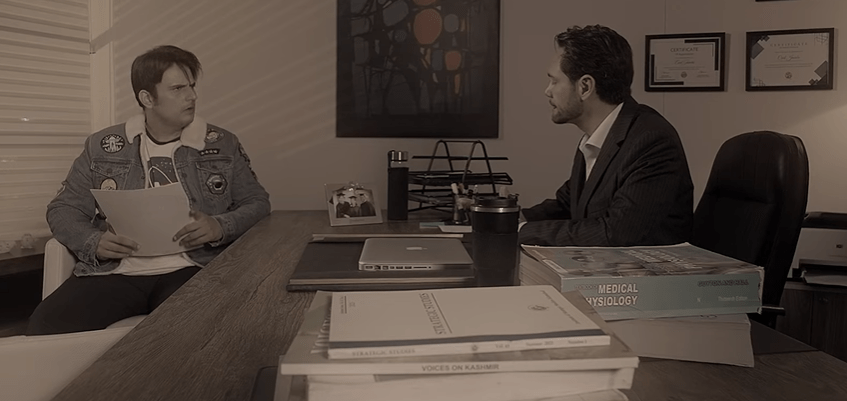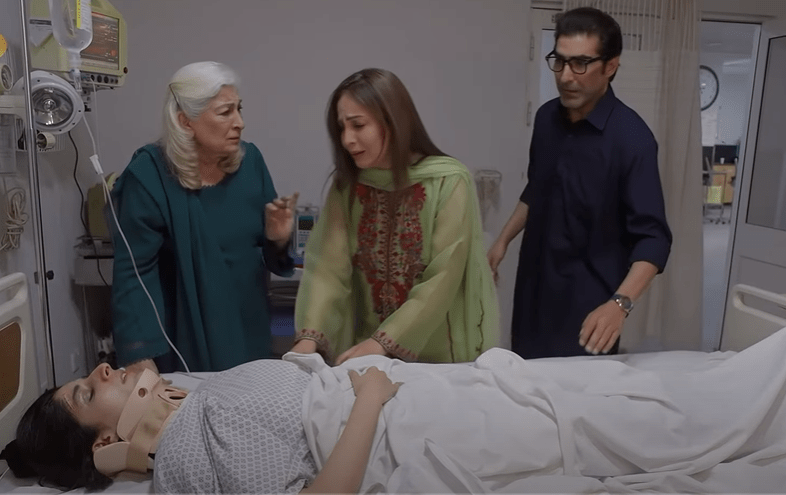Explore the emotional depths of the Pakistani drama “Jafaa,” focusing on Zara’s struggle against domestic violence, mental health issues, and societal expectations. This analysis delves into complex character interactions, pivotal scenes, and the significance of compassion and understanding in navigating the challenges faced by Zara and her relationship.
1. Introduction
The Pakistani drama “Jafaa” features an excellent cast with the talents of Mawra Hussain, Mohib Mirza, Usman Mukhtar, Sehar Khan, Nadia Afgan, Nauman Masood, Anam Gohar, and Zarrar Khan. The enticing series is sure to cast a spell because deep love heals old wounds and even unites estranged people long after their wicked past.
This situation is very typical for a soap opera drama, relating to such deep complex family relationships, mental illness, and the outcome of domestic violence.
2. Character Interactions
2.1. Zara’s Struggle
Portrayed as a victim of domestic violence, caught in the confined and teeming cycle of emotional pain and guilt with Hassan, Zara’s interaction with various family members leaves the reader with the zealous desire to heal and find support for wounds inside the minds and hearts of many victims as they try to escape this worldly feeling of being entrapped. The language used highlights her feelings of need for fulfillment and validation, and opens up the larger question with a critical eye toward society, which so often pushes these voices into isolation and silences their cries.
2.2. Hassan’s Crisis
Hassan is the turbulence of unforgotten anger and the problems of the psychic world. He lets his anguish out on Zara when a glimmer of weakness reveals the real face of him wherein the issue of accountability has to be addressed and how the untreated trauma leaves behind the sparks of violence that Hassan portrays. His appeal to Zara to pardon him makes his character a complex matter, and the audience is left to ponder the base of aggression and the vicious cycle of abuse.


2.3. Role of Family
Of course, family dynamics are a very important factor in the narration, especially through the figure of the grandmother as a reflection of traditional social structures and expectations. Her enforced strict adherence to clichéd gender roles raises very high tension, especially as reflected in her interaction with Zara. That the grandmother is willing to go any length to maintain family harmony exemplifies a kind of intergenerational difference in experiencing and dealing with domestic violence and mental health, with a jarring need for social change in both cases.
3. Themes and Motifs
3.1. Domestic Violence
This episode poignantly depicts the act of domestic violence, both in terms of the psychological oppression it entails and the trauma suffered by the victim and the psychology of the perpetrator. The suffering of Zara and the explosive anger of Hassan bring to light the vicious cycle created from the violent act, providing essential dialogue about the need for awareness in such situations and intervention on behalf of the hurt party. The show brings the audience eye-to-eye with the significance of looking out for signs of domestic violence and bringing it into attention along with granting support to the victim.
3.2. Mental Health
The obvious theme is mental health, specifically in the character of Hassan, wherein lie dominating groups of anger and stigma towards treatment for mental health. The play compels the public to confront the issues that shout to be responded to, pertaining to the issues of how mental health has to be dealt with when its issues surround within relationships, empathies, and understanding.
3.3. Gender Roles
Above episode ridicules the patriarchal psyche of the society and its expectations from women. The grandmother’s persistence that Zara should prove responsible towards family harmony at any cost, even if she has to risk her safety, does raise very fundamental questions regarding the pressure exerted by society on a woman for remaining quiet and tolerating similar crimes committed by their own kiths and kin. It calls for the deconstruction of the same social ideals and demands equal rights and care towards each other in the drama.
4. Analysis of Key Scenes
4.1. The Confrontation
Zara’s confrontation by Hassan is the key moment in the narrative as she untangles the cumulative milkington of unresolved anger. This stage in the account is an important point of change for Zara in that she begins to voice her stand regarding the realities of the matter at hand. The power of the wordings well captures the search for power that these victims often face, and it calls for power advocacy and empowerment.
4.2. The Hospital Scene
In the hospital scene, we find yet another very vivid representation of somatic and psychic degradations resulting from abuse. It also brings about the issue of support systems or the lack thereof that a victim might face. The reactions of the family members toward Zara’s condition seem to open up different visions of relationships and victimhood, which worsens her effort toward healing and self-recovery.



4.3. The Pregnancy Discussion
The pregnancy of Zara gives a new dimension to the affair between Zara and Hassan. Various reactions she undergoes—be it hope, despair, or anything in between—mark the individual struggle at play and pave the way for more upcoming conflict. The moment best serves as a catalyst to look deeper into their relationship and their own dilemmas and how deep the interlacing themes of love, fear, and uncertainty run.
4.4. Debu’s Uncertainty
Parallel to Zara’s, here comes Debu and Numair, who also have to face massive upheavals in their relationship. Debu’s pregnancy revelation brings new complications in her life, at which she remains totally lost about how Numair would react. This thing adds tension to their relationship as it shows how unexpected news can put all the very foundations of a relationship at a strain.

4.5. Reaction from Numair
In one such moment, when Debu confesses her pregnancy to Numair, he draws back, and the pain in his eyes leaves Debu half-hoping to be comforted by him. This is perhaps one of the most important scenes narrated to express the difficulty in dealing with emotional disturbances in the relationship, more so when both are at different levels of emotional preparedness. The tenseness it holds displays how communication and understanding could be devastating; hence it demands compassion and candid talk.

5. Meeting with the Doctor
The last half of the episode was a more dramatic face-off with the doctor, who comes up with scary news for the unsuspecting Numair regarding his fertility. This brings about a devastation of the long-harbored dream of having children alongside an overpowering emotional burden on his not-so-plain relationship with Debu. As Numair deals with the prognosis, the newly diagnosed condition has stimulated a deep identity and masculinity crisis in him.

Numair finally complains during his last session, expressing his dismay and frustration at the terrible reality of his predicament. The contrast between his panic and the doc’s calm face can get frustrating as well as helpless for viewers to see. That juxtaposition presents itself in a typical situation in the medical community when patients are bombarded with information that drastically changes their lives, but the medical professionals remain detached. The clinical approach of the doctor then becomes a sort of counterpoint to call attention to the emotional vacuum that frequently accompanies such disconcerting news, which has strengthened a theme of isolation that can occur in moments of crisis.
Moreover, this moment serves as a powerful representation of the challenges faced when confronting life-altering realities within relationships. Numair’s reaction to the news opens up a dialogue about vulnerability and the need for emotional support from partners during difficult times. It invites viewers to reflect on how couples navigate life’s unpredictable challenges and the importance of communication in fostering understanding and empathy.
Numair’s emotional unease is not only with his identity but also with what he thinks the relationship he shares with Debu is. His anxiety to live up to social expectations of parenthood will make him withdraw emotionally as well. Thus, their relationship then becomes all the more complicated for Debu, who begins by seeking his support. She has to cope with him turning unavailable emotionally at the time that suits her most. In this tension is the difference of the entirety of theme as how life-changing news can shake the foundation of a relationship, encouraging viewers to consider the implications of such revelations on personal and familial dynamics.

Ultimately, the scene with the doctor becomes the symbolic culmination of emotions gelled around the issue of infertility and the complications of keeping a relationship alive under strain. It is imposed upon the viewer to think of support, understanding, and communication in the face of life-changing events, ultimately fortifying the view that such complexities require empathy, patience, and the willingness to face those difficult feelings together.
